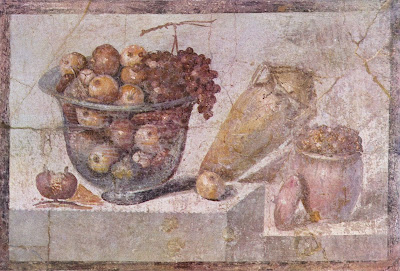I wasn't going to listen to Virgil's Georgics on Radio 4.
It is the latest programme from In Our Time, but I am glad I did, because it not only made me want to read Mr. Vergil's poem but shed light on heaps to do with how Roman agriculture, from small time farmers to the big "for profit" landed estates.
 |
| Grassland, 2023 |
"In the year 29 BC the great Roman poet Virgil published these lines:
'Blessed is he who has succeeded in learning the laws of nature’s working, has cast beneath his feet all fear and fate’s implacable decree, and the howl of insatiable Death. But happy too is he who knows the rural gods…'
They’re from his poem the Georgics, a detailed account of farming life in the Italy of the time. ‘Georgics’ means ‘agricultural things’, and it’s often been read as a farming manual.
But it was written at a moment when the Roman world was emerging from a period of civil war, and questions of land ownership and management were heavily contested.
It’s also a philosophical reflection on humanity’s relationship with the natural world, the ravages of time, and the politics of Virgil’s day.
 |
| Fruits of the land, circa 63-79 AD |
With, Katharine Earnshaw, Senior Lecturer in Classics and Ancient History at the University of Exeter; Neville Morley, Professor of Classics and Ancient History at the University of Exeter, and Diana Spencer, Professor of Classics at the University of Birmingham
Producer: Luke Mulhall"
Picture; Grassland, 2023, from the collection of Andrew Simpson, Still life with glass bowl of fruit and vases, circa 63-79 AD,Naples National Archaeological Museum. The work of art depicted in this image and the reproduction thereof are in the public domain worldwide. The reproduction is part of a collection of reproductions compiled by The Yorck Project. The compilation copyright is held by Zenodot Verlagsgesellschaft mbH and licensed under the GNU Free Documentation License.
*Virgil's Georgics, In Our Time, Radio 4, https://www.bbc.co.uk/programmes/m001lyt4
No comments:
Post a Comment